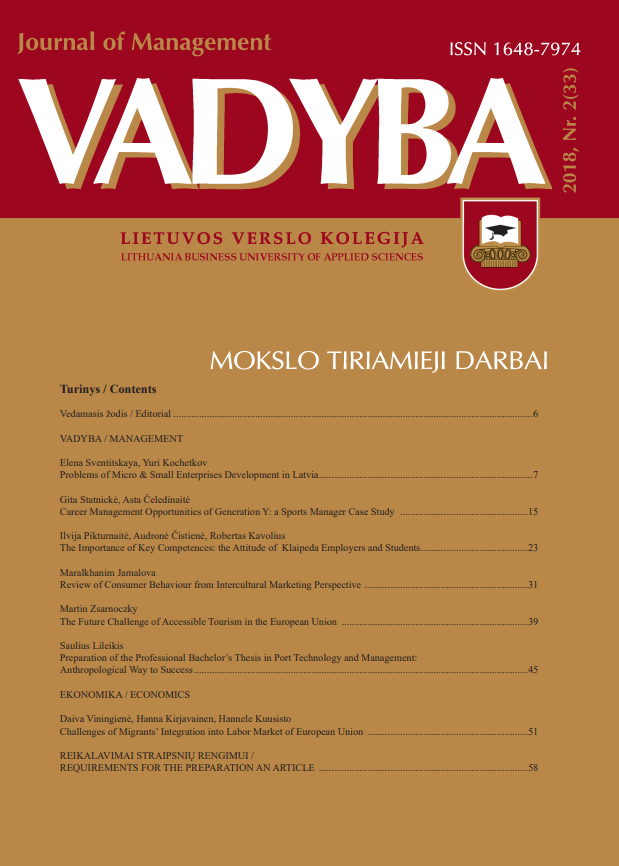THE FUTURE CHALLENGE OF ACCESSIBLE TOURISM IN THE EUROPEAN UNION
THE FUTURE CHALLENGE OF ACCESSIBLE TOURISM IN THE EUROPEAN UNION
Author(s): Martin ZsarnoczkySubject(s): Social Sciences, Tourism
Published by: Lietuvos verslo kolegija
Keywords: accessibility; European accessibility; accessible tourism; European Union;
Summary/Abstract: The tourism industry is going through continuous change and development. Novel impacts, trends and innovative solutions all play significant role in the development of the industry, but the general growth within the sector is affected by other external factors, too. One of these external factors is the re-definition of new or even older tourism trends. The change of trends and fashions is just as cyclical in the tourism industry as everywhere else. The sector of European accessible tourism is among the newly re-defined areas, with and increasing attention towards the field. As of today, the terminology of accessible tourism had widened significantly; the terms used in the sector were re-defined in order to be able to contribute to the mental accessibility of the whole society. The importance of this re-defined segment is foreseen to increase in the near future, as - due to various reasons and at different levels -, one out of every 5 people in the EU belongs to the demographic group of people with special needs. Furthermore, the classification latency of the tourism sector can be even greater. The total number of people in the group of tourists with special needs is far bigger and more sophisticated than indicated by the statistical data. For tourism stakeholders, the issue of hereditary or acquired disabilities is a key factor, as well as the question of non-visible impairments – an important difference that the current databases keep no track of.The current research – based on the results of a previous research – focuses on a special segment within accessible tourism: namely the characteristics of para-athletes and their tourism-related habits and preferences. Due to the currently ongoing transformation processes, European accessibility represents a dynamically widening market segment, including tourism as well. The employment of specially skilled workforce has become of key importance for accessible tourism in the EU; and not only because the professionally trained staff increases the quality of services but also because the availability of special supplementary services are the basis of the further development of the whole tourism industry
Journal: VADYBA
- Issue Year: 33/2018
- Issue No: 2
- Page Range: 39-43
- Page Count: 5
- Language: English

